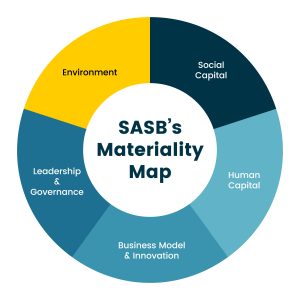Over the past decade, there has been a massive surge towards investors applying pressure onto companies for their carbon footprint and various other social and governance issues. In tandem with government policy, many public companies have worked hard to meticulously disclose their ESG related practices to hold each other accountable. In fact, 90% of all S&P500 companies had sustainability reports as of 2019. However, in the Summer of 2021 I had the privilege of doing consulting work in Private Equity and found that these same customer and government pressures simply did not exist, and the industry was lagging.
In 2013 the Guardian wrote an article outlining private companies’ main reservations behind sustainability reporting. Many leadership teams stated that there were simply too many variables to measure causing immense amount of extra work (especially in smaller companies), it was costly, the data was hard to obtain in complex value chains, and it was often too over-complicated for investors to care. Luckily, as talked about last class, there are various organizations pushing for change.
One organization is called the Sustainability Accounting Standards Board (SASB) – an independent non-profit wanting to standardize sustainability metrics, but in a sector-specific way for the most relevance.  Founded in 2011, these KPI’s complement the CDSB Framework’s Principles on reporting climate information. It contains 77 standards covering 26 different environmental, social, and governance issues that tailor to specific industries. For example, water-usage is a key metric in textiles, but not for insurance companies. With ESG investing strategies increasing 42% in the last two years, SASB Reporting Standards help companies with strategic decision-making, reducing costs of sustainability reporting, and increasing their rating against competitors.
Founded in 2011, these KPI’s complement the CDSB Framework’s Principles on reporting climate information. It contains 77 standards covering 26 different environmental, social, and governance issues that tailor to specific industries. For example, water-usage is a key metric in textiles, but not for insurance companies. With ESG investing strategies increasing 42% in the last two years, SASB Reporting Standards help companies with strategic decision-making, reducing costs of sustainability reporting, and increasing their rating against competitors.
One example of a company who used SASB to their benefit is Schnitzer Steel Industries Inc. Schnitzer is one of the largest manufacturers and exporters of recycled metal in North America. When looking at  various ESG reporting metrics, they found that CDP and TFCD disclosures weren’t very granular in their analysis. Initially, they used GRI disclosures, but found these not too relevant to their industry in particular. In 2019 they joined the SASB Alliance, and their Director of Sustainability Robert Ellsworth has stated that it was immensely beneficial to their forward-thinking strategic direction.
various ESG reporting metrics, they found that CDP and TFCD disclosures weren’t very granular in their analysis. Initially, they used GRI disclosures, but found these not too relevant to their industry in particular. In 2019 they joined the SASB Alliance, and their Director of Sustainability Robert Ellsworth has stated that it was immensely beneficial to their forward-thinking strategic direction.
Companies around the world are pushing to become more sustainable, but private companies lacking as much pressure require clear, easy-to-use, standardized disclosure frameworks to forge ahead to a greener, more just world.
Sources:
https://www.cdsb.net/sustainability-accounting-standards-board-sasb
https://esg.conservice.com/breakdown-of-sasb-framework-and-benefits/
https://www.theguardian.com/sustainable-business/reforming-sustainability-reporting-pros-cons
https://www.sasb.org/blog/schnitzer-steel-refining-a-century-old-sustainability-story-with-strategy-and-standards/
MuhammadKonain
April 5, 2023 — 6:18 pm
Hi Zach,
I really like this blog. I hope more private equity firms adopt SASB reporting standards and other ESG practices to drive positive change in the industry.